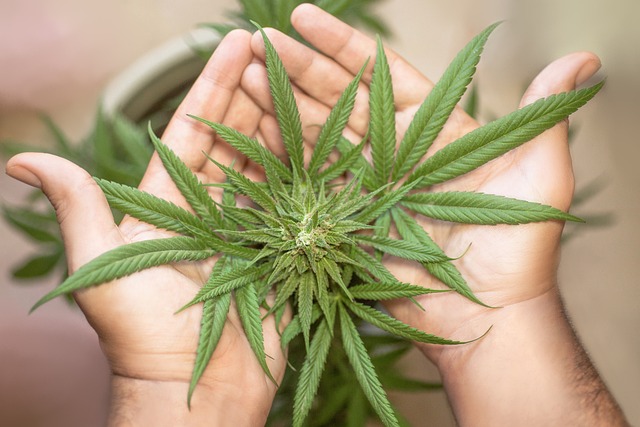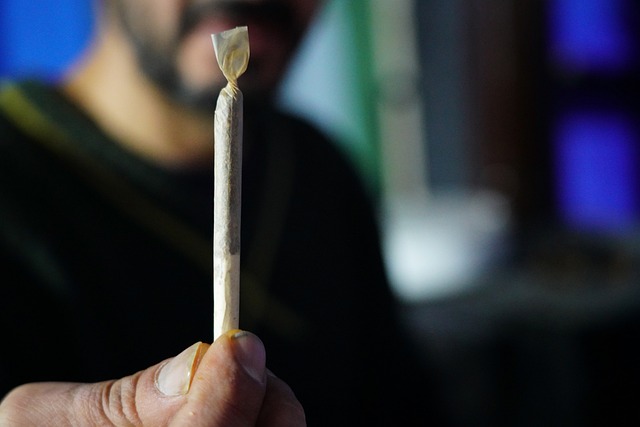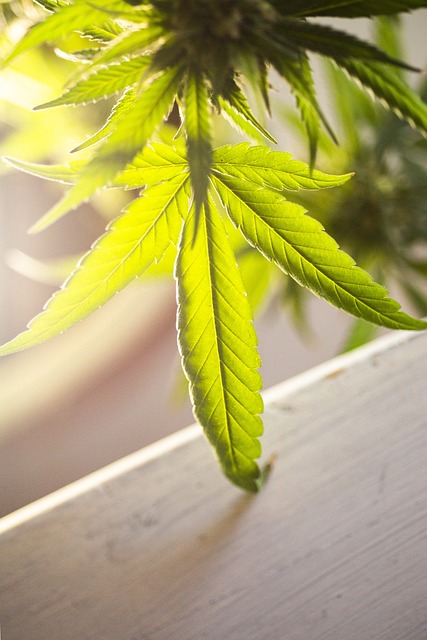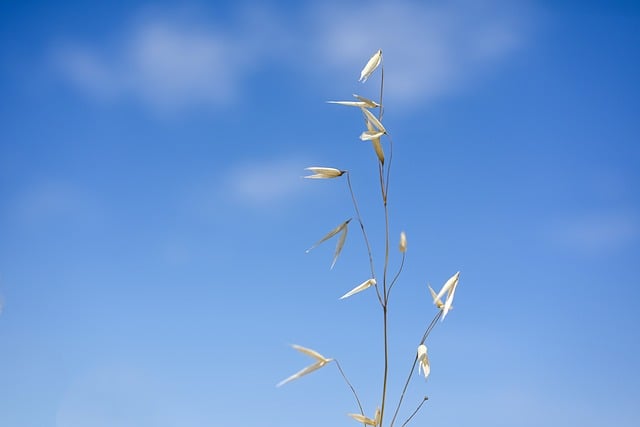Montana has recently legalized THCA (Tetrahydrocannabinolic Acid), a non-psychoactive compound found in cannabis, for both medical and recreational use under specific concentration limits. This legislative change expands wellness options for residents, with studies suggesting THCA may offer anti-inflammatory and neuroprotective health benefits. Users should store THCA flower properly to maintain its efficacy and avoid converting it into psychoactive THC due to heat or light exposure. Understanding the terpene profiles of different strains can enhance the user experience. New users are advised to start with small doses to understand the effects before adjusting intake. Montana's dispensaries offer a diverse selection of THCA flower products that comply with state guidelines, catering to various needs and preferences. THCA's legal status in Montana is significant, positioning the state at the forefront of exploring cannabinoids for health benefits and reflecting a commitment to advancing scientific understanding of THCA's potential therapeutic applications. The state's progressive stance on THCA aligns with its history of supporting medical marijuana, as evidenced by the Montana Marijuana Initiative (I-190) passed in 2004. Montana continues to adapt its cannabis legislation to support the health and well-being of its residents while ensuring compliance with state laws. THCA's legal standing in Montana is a key development in the state's approach to cannabinoid therapy, reflecting a dynamic regulatory environment that prioritizes patient access and safety.
Explore the multifaceted world of THCA flower, a non-psychoactive cannabinoid that’s garnering attention among Montana’s cannabis community. This comprehensive guide demystifies the benefits and effects of THCA, ensuring residents are well-versed in its legal status within the state. From understanding how it differs from its psychoactive counterpart, THC, to exploring the various methods of consumption, this article covers the ins and outs of sourcing high-quality THCA flower, its potential therapeutic uses, and the importance of quality, purity, and potency standards in Montana’s legal market. Dive into the nuances of converting THCA to THC, the role of growing your own, and the latest research on this promising cannabinoid. Whether you’re a novice or an experienced user, this article provides valuable insights to enhance your understanding and use of THCA flower.
- THCA Flower: A Comprehensive Guide for Montana Residents
- Understanding THCA: The Precursor to THC
- Legal Landscape of THCA in Montana
THCA Flower: A Comprehensive Guide for Montana Residents

Montana’s residents interested in exploring the potential benefits of cannabis have a specific compound to consider: THCA, or Tetrahydrocannabinolic Acid. As of recent legislative updates, THCA-rich flower is legal within Montana’s borders for both medical and adult recreational use, provided it contains less than 0.3% delta-9-THC by dry weight. This legality has opened up a new realm of wellness options for residents, as THCA is non-psychoactive and is being studied for its potential therapeutic properties, including anti-inflammatory and neuroprotective effects.
When delving into the world of THCA flower, Montana residents should familiarize themselves with proper storage to maintain its potency. It’s crucial to keep the flower in a cool, dark place to prevent degradation, as heat and light can convert THCA into THC over time. Additionally, understanding the different strains and their unique terpene profiles can enhance one’s experience, as these compounds are thought to influence the effects of cannabinoids. For those new to cannabis products, it’s advisable to start with a low dosage and observe effects before adjusting intake. Montana’s dispensaries offer a variety of THCA flower options, catering to diverse preferences and needs within the state’s legal framework.
Understanding THCA: The Precursor to THC

Delta-9-tetrahydrocannabinolic acid, commonly known as THCA, is a naturally occurring cannabinoid found in the Cannabis sativa plant. As the precursor to the well-known psychoactive compound THC, THCA has garnered attention for its potential therapeutic properties without the intoxicating effects associated with THC. Research has indicated that THCA may offer beneficial effects, including anti-inflammatory and neuroprotective qualities, which are currently under investigation for various health conditions.
In Montana, the legal landscape regarding cannabis products is distinct. The state has legalized medical marijuana, allowing patients with qualifying conditions to access THCA and other cannabinoids for therapeutic purposes. Additionally, in 2020, Montana voters passed Initiative 190, which legalized adult-use cannabis, including THCA, subject to state regulations. This legislative change has opened up new avenues for research and the exploration of THCA’s potential benefits, as well as its role in the cannabinoid spectrum. Montana’s forward-thinking approach to THCA reflects a growing recognition of the compound’s value and the need for further scientific understanding of its effects.
Legal Landscape of THCA in Montana

In Montana, the legal status of tetrahydrocannabinolic acid (THCA) has been a subject of interest and regulation following the evolving landscape of cannabis legislation. As per the Montana Marijuana Initiative (I-190), which was passed by voter approval in 2004, medical marijuana patients in the state are permitted to possess and use THCA in its raw form. This initiative allowed for a more compassionate approach towards patients suffering from various debilitating conditions, granting them access to cannabis and its non-psychoactive precursor, THCA, for therapeutic purposes. The Montana Legislature further clarified the legal standing of THCA by distinguishing it from other forms of cannabinoids that have been psychoactively processed, such as delta-9-tetrahydrocannabinol (THC). This legislative differentiation is crucial for compliance and ensures that patients can legally access THCA-rich products with higher concentrations for their medical needs. The state’s regulatory framework continues to adapt to new scientific discoveries and public policy considerations, reflecting a commitment to the well-being of its residents and the harmonization of cannabis laws within the legal landscape of Montana.
Montana residents now have a clear understanding of THCA flower, its relationship to THC, and the legal landscape governing its use within the state. As outlined, THCA holds potential for various therapeutic benefits, making it a subject of growing interest among consumers and researchers alike. With Montana’s progressive stance on cannabis-related products, individuals can explore the properties of THCA legally under the state’s regulations. This guide serves as a valuable resource for those seeking to engage with THCA flower within the confines of the law, ensuring safe and informed use.
